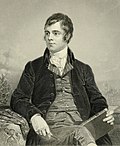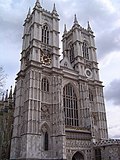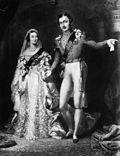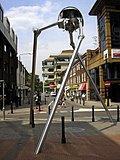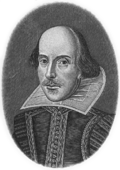Portal:United Kingdom
The United Kingdom Portal
 |
 |
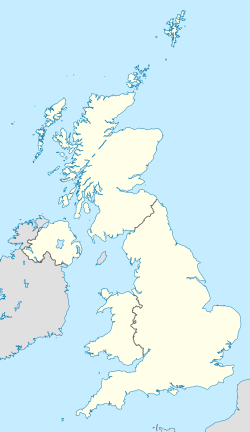
| |
The United Kingdom of Great Britain and Northern Ireland, commonly known as the United Kingdom (UK) or Britain, is a country in Northwestern Europe, off the coast of the continental mainland. It comprises England, Scotland, Wales, and Northern Ireland. The UK includes the island of Great Britain, the north-eastern part of the island of Ireland, and most of the smaller islands within the British Isles, covering 94,354 square miles (244,376 km2). Northern Ireland shares a land border with the Republic of Ireland; otherwise, the United Kingdom is surrounded by the Atlantic Ocean, the North Sea, the English Channel, the Celtic Sea, and the Irish Sea. The UK maintains sovereignty over the British Overseas Territories, which are located across various oceans and seas globally. The United Kingdom had an estimated population of over 68.2 million people in 2023. The capital and largest city of both England and the United Kingdom is London. The cities of Edinburgh, Cardiff, and Belfast are the national capitals of Scotland, Wales, and Northern Ireland, respectively.
The UK has been inhabited continuously since the Neolithic. In AD 43, the Roman conquest of Britain began; the Roman departure was followed by Anglo-Saxon settlement. In 1066, the Normans conquered England. With the end of the Wars of the Roses, the English state stabilised and began to grow in power, resulting by the 16th century in the annexation of Wales, and the establishment of the British Empire. Over the course of the 17th century, the role of the British monarchy was reduced, particularly as a result of the English Civil War. In 1707, the Kingdom of England and the Kingdom of Scotland united under the Treaty of Union to create the Kingdom of Great Britain. In the Georgian era, the office of prime minister became established. The Acts of Union 1800 incorporated the Kingdom of Ireland to create the United Kingdom of Great Britain and Ireland in 1801. Most of Ireland seceded from the UK in 1922 as the Irish Free State, and the Royal and Parliamentary Titles Act 1927 created the present United Kingdom.
The UK became the first industrialised country and was the world's foremost power for the majority of the 19th and early 20th centuries, particularly during the Pax Britannica between 1815 and 1914. The British Empire was the leading economic power for most of the 19th century, a position supported by its agricultural prosperity, its role as a dominant trading nation, a massive industrial capacity, significant technological achievements, and the rise of 19th-century London as the world's principal financial centre. At its height in the 1920s, the British Empire encompassed almost a quarter of the world's landmass and population, and was the largest empire in history. However, its involvement in the First World War and the Second World War damaged Britain's economic power and a global wave of decolonisation led to the independence of most British colonies. (Full article...)
Featured article
The Hoxne Hoard is the largest hoard of late Roman silver and gold discovered in Britain. Found by a metal detectorist in the village of Hoxne in Suffolk, England, on 16 November 1992, the hoard consists of 14,865 Roman gold, silver and bronze coins from the late fourth and early fifth centuries, and approximately 200 silver tableware and gold jewellery items. The hoard is now on permanent display in the British Museum and is valued at £4.5 million. The coins of the hoard date it after 407 AD, which coincides with the end of Britain as a Roman province. The Hoxne Hoard contains several rare and important objects, including a gold body-chain and silver-gilt pepper-pots. The Hoxne Hoard is also of particular archaeological significance because it was excavated by professional archaeologists with the items largely undisturbed and intact. The find has helped to improve the relationship between metal detectorists and archaeologists, and influenced a change in English law regarding finds of treasure. (Full article...)
Featured biography
Wulfhere (died 675) was King of Mercia from the end of the 650s until 675. He was the first Christian king of all of Mercia, though it is not known when or how he was converted. His accession marked the end of Oswiu of Northumbria's overlordship of southern England, and Wulfhere extended his influence over much of that region. His campaigns against the West Saxons led to Mercian supremacy over much of the Thames valley. He conquered the Isle of Wight and the Meon valley and gave them to King Æthelwealh of the South Saxons. He married Eormenhild, the daughter of King Eorcenberht of Kent. He was effectively the overlord of Britain south of the Humber from the early 660s, although not overlord of Northumbria as his father had been. In 674, he challenged Oswiu's son Ecgfrith of Northumbria, but was defeated. He died, probably of disease, in 675. (Full article...)
General images -
Subportals
WikiProjects
Things you can do
- Visit the British Wikipedians' notice board.
- The noticeboard is the central forum for information and discussion on editing related to the United Kingdom.
- Comment at the British deletion sorting page.
- This page lists deletion discussions on topics relating to the United Kingdom.
Featured pictures
Did you know -

- ... that a Space Forge satellite is scheduled to fly on the first-ever satellite launch from the United Kingdom?
- ... that South African president Jacob Zuma requested a tour of a Sainsbury's supermarket during his state visit to the United Kingdom in 2010?
- ... that Surinder Singh Bakhshi led the successful containment of smallpox in the community during Birmingham's smallpox outbreak in 1978?
- ... that Phil Fletcher as Hacker T. Dog caused Lauren Layfield to make the "most famous snort" in the United Kingdom in 2016?
- ... that the 1st Armoured Division of the British Army chose a white rhinoceros on a black oval as their insignia?
- ... that the historian and political journalist Lancelot Lawton addressed a House of Commons committee in London in 1935, beginning: "The chief problem in Europe to-day is the Ukrainian problem"?
In the news
- 16 April 2025 –
- The United Kingdom suspends the import of cheese and meat products from the European Union to prevent the spread of foot-and-mouth disease. (BBC News)
- 16 April 2025 – Transgender rights in the United Kingdom, For Women Scotland Ltd v The Scottish Ministers
- The Supreme Court of the United Kingdom rules that legal gender is based upon biological sex for the purposes of the Equality Act 2010. (BBC News)
- 15 April 2025 – Sudanese civil war, Foreign aid to Sudan
- The European Union and its member states pledge €522 million (US$590 million) and the United Kingdom pledges £120 million (US$141 million) in humanitarian aid to Sudan to deliver food and supplies to over 650,000 internally displaced Sudanese people affected by the fighting between the Rapid Support Forces and the Sudanese Armed Forces. The two groups also call for an immediate ceasefire to end the war. (DW) (AP)
- 14 April 2025 – Russian invasion of Ukraine
- United Kingdom and the Russian invasion of Ukraine
- The United Kingdom sends £752 million ($990 million) to Ukraine for the purchase of surface-to-air missiles, artillery and spare parts for fighter aircraft, as part of an international loan programme funded primarily through seized Russian financial assets. (Reuters)
- 14 April 2025 – July Revolution
- A court in Dhaka, Bangladesh, along with the Anti-Corruption Commission, issues an arrest warrant for Tulip Siddiq, a United Kingdom MP who is the niece of ousted former leader Sheikh Hasina, for corruption allegations. Siddiq has rebuked the arrest warrant and called it a "smear campaign" against her. (DW) (BBC News)
Categories
Other UK-connected Wikipedias
Wikimedia
The following Wikimedia Foundation sister projects provide more on this subject:
-
Commons
Free media repository -
Wikibooks
Free textbooks and manuals -
Wikidata
Free knowledge base -
Wikinews
Free-content news -
Wikiquote
Collection of quotations -
Wikisource
Free-content library -
Wikiversity
Free learning tools -
Wikivoyage
Free travel guide -
Wiktionary
Dictionary and thesaurus









